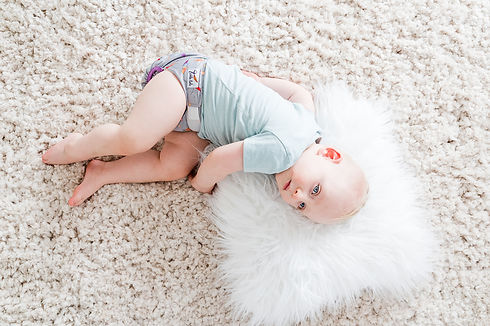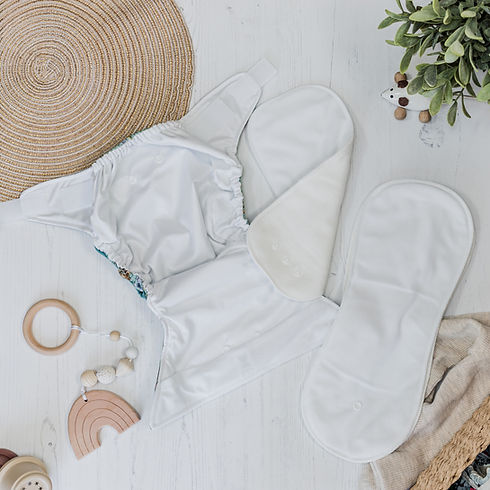Benefits of Using Cloth Nappies
Tickle Tots nappies are safe for baby, and gentle on the Environment.

ENVIRONMENT
It is predicted that a child will use between 4,000 and 6,000 nappies. These will unfortunately end up in landfill sites and as they decompose give out a harmful greenhouse gas called methane, which contributes to climate change.
-
One billion trees will be cut down world wide to provide the wood pulp needed to make single use nappies each year.
-
Single use nappies take up to 500 years to decompose.
-
The Environment Agency has found reusable nappies to be 40% better for the environment compared to single use nappies.*
-
3.4 billion gallons of oil are used every single year to manufacture single use nappies in the US alone
-
Disposable nappies use up to three and a half times more energy to make compared to cloth nappies.
* The UK Environment Agency 2008 Cloth vs. Disposable ‘Life Cycle Analysis’ report


CHEMICAL FREE
All the fabrics used in Tickle Tots nappies are tested to Oeko-tex Standard 100, meaning that no harmful chemicals have been used in their production process. Tickle Tots nappies are safe for baby, and gentle on the Environment
∙ Research from Bristol University shows that children in reusable nappies are no more likely to have severe nappy rash than children in single use nappies – many parents have found switching to reusable nappies helps considerably to reduce the irritation to baby’s sensitive skin.
∙ Cloth nappies are made from natural materials, which help your child’s skin to breathe naturally as they do not contain any chemicals or gels.



DESIGN
Modern cloth nappies are designed be reliable and absorbent – no more poo explosions, and with the right absorbency, no overnight leaks!
∙ Tickle Tots nappies have a unique combination of features, including a double leg gusset to prevent leaks.
∙ Hook and loop fastenings and poppers to adjust the rise make it quick and easy to get a great fit on a nappy that fits from 9-35lb
∙ The design of single use nappies means that the child can not feel when they are wet, leading to delayed potty training. Anecdotal evidence suggests that children will potty train 6 months earlier in reusable nappies.

less landfill
In the UK each baby uses on average 6000 nappies! That is 6000 single use nappies going to landfill per baby, and overall about 8,000,000 to landfill EACH DAY!
-
WRAP (the Government's Waste & Resources Action Programme) have calculated that households which use cloth nappies reduce their household waste by up to half compared to those continuing to use disposables.
-
The annual disposal cost to local councils (and therefore taxpayers) of this 355,000 tonnes of nappy waste is around £32 million! For every £1 spent on disposables, it costs the British taxpayer 10p to dispose of them.

